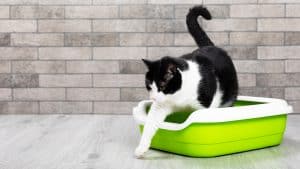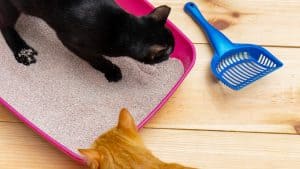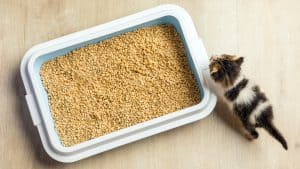Ever thought your cat's litter box could be the treasure trove of information you didn't know you needed?
As a dedicated cat owner, you're always on the lookout for the well-being of your feline friend.
But sometimes, the clues to their health are hidden in the most unsuspecting places - their litter box.
Changes in the litter box can often be the earliest sign of potential health issues.
In this eye-opening guide, we'll navigate the mysteries of a cat's litter box, from the secrets hidden in their urine to the tales told by their feces.
We'll help you decode what's normal and what's not, giving you the power to spot early signs of trouble.
But remember, this guide is a partner to, not a replacement for, professional veterinary advice.
The Normal Appearance of a Cat's Litter Box
Before we explore the white stuff that you might find in your cat's litter box, it's essential to understand what normal cat waste should look like.
This knowledge will enable you to discern between typical litter box contents and anything unusual that might warrant attention.
Normal Cat Urine Appearance
Typically, cat urine should be clear to pale yellow in color.
This coloration is a result of urobilin, a chemical that results from the breakdown of hemoglobin in the body.
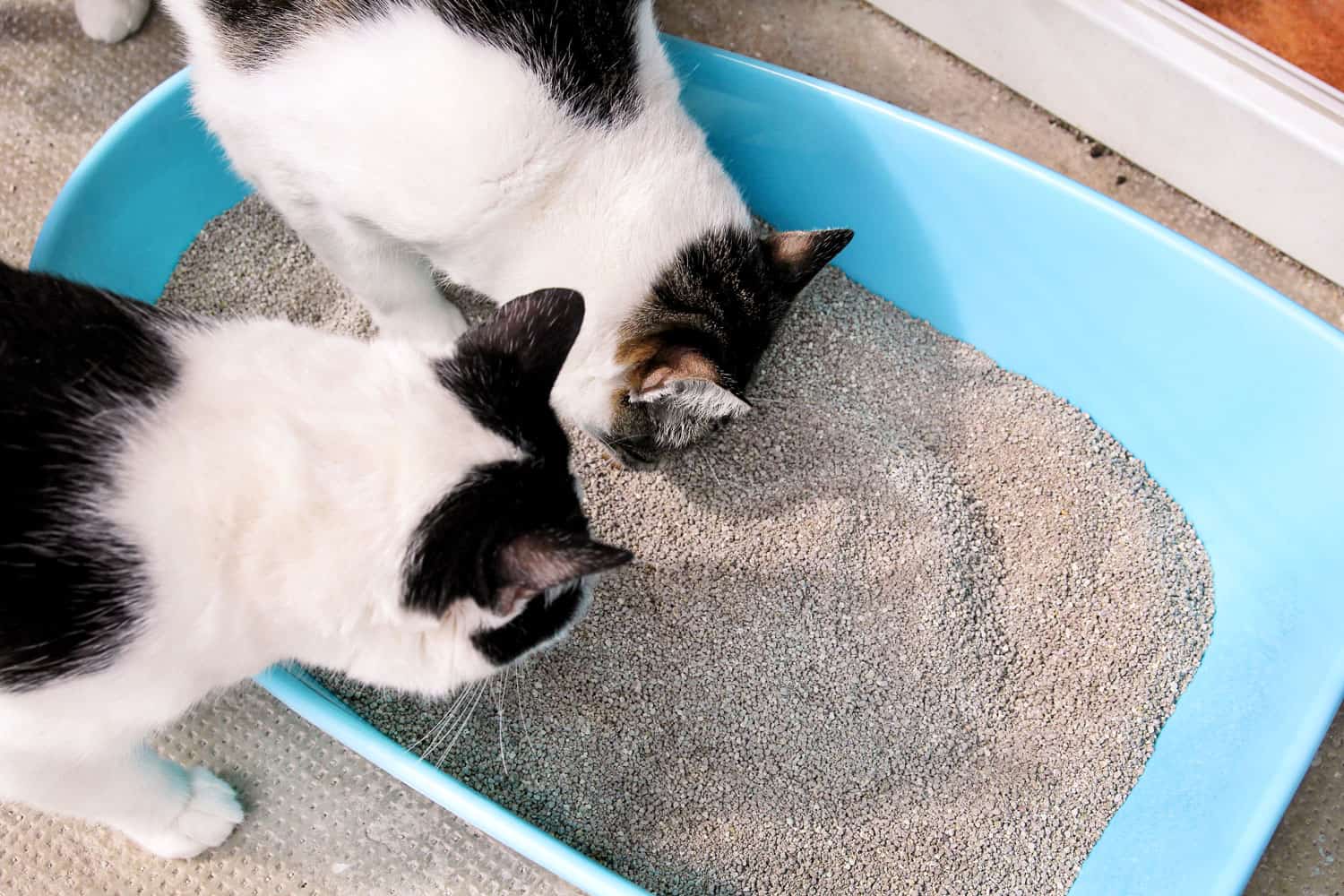
The clarity and color can vary depending on factors such as your cat's hydration levels and diet.
If your cat is well-hydrated, their urine may be almost colorless.
Normal Cat Feces Appearance
Healthy cat feces should be deep brown in color, well-formed, and not overly hard or soft.
The color comes from bilirubin, a pigment that arises from the breakdown of red blood cells.
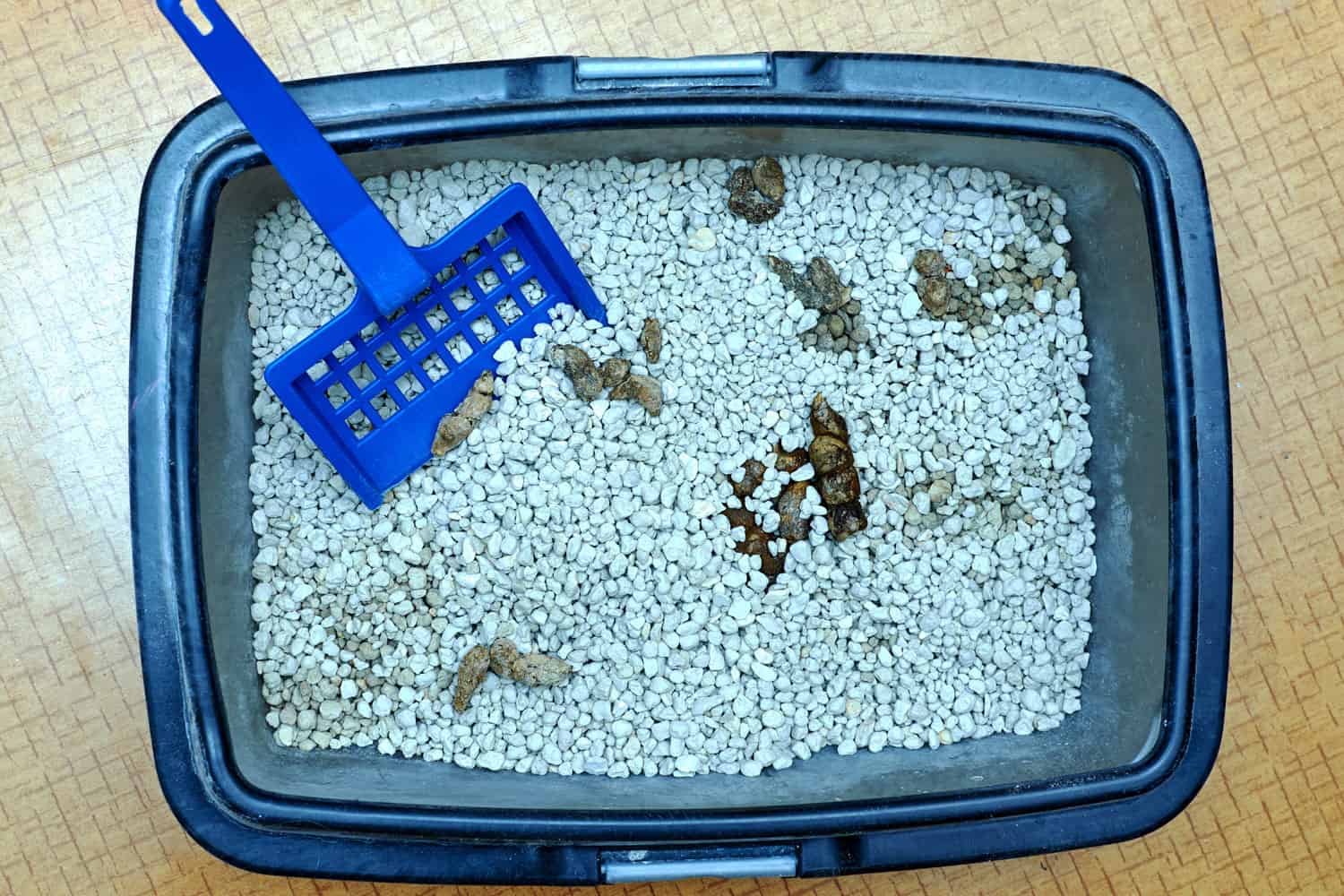
The exact color and consistency of your cat's feces can depend on its diet.
For instance, a diet high in animal protein will result in darker, well-formed feces.
Normal Litter Box Smell
A healthy cat's litter box shouldn't have an overly strong or foul odor.
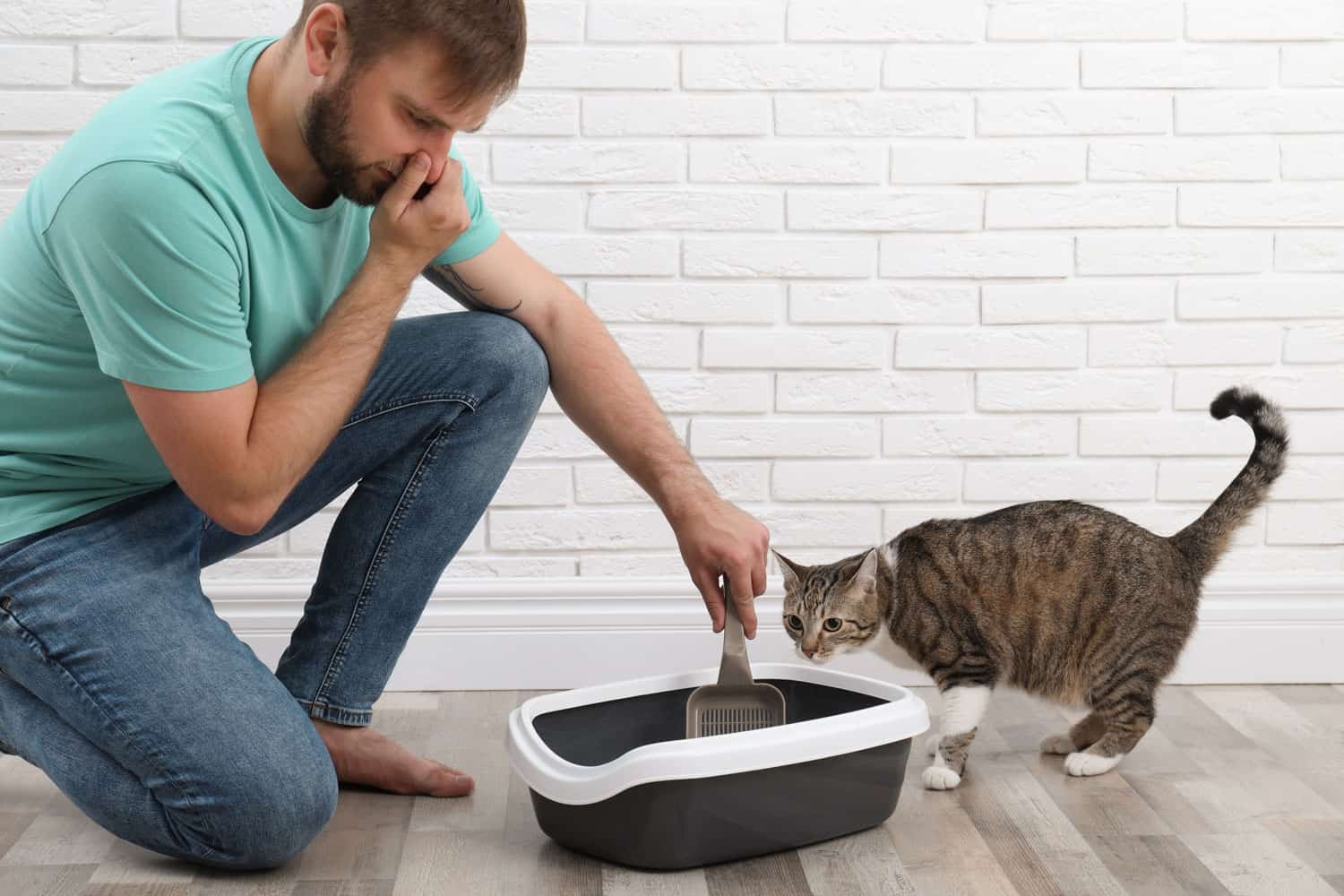
While it's normal for both urine and feces to have a certain smell, an unusually strong or off-putting odor could be a sign of health issues.
A balanced diet and good hydration can help keep litter box smells in check.
White Stuff in Cat's Litter Box: From Urine
Understanding the intricacies of your cat's urine can seem daunting.
However, changes in color, consistency, and overall appearance can be vital clues to your pet's health.
Here are the potential causes of white substances appearing in your cat's urine.
Dehydration of Cat
Dehydration in cats can often lead to a change in the color and consistency of their urine.
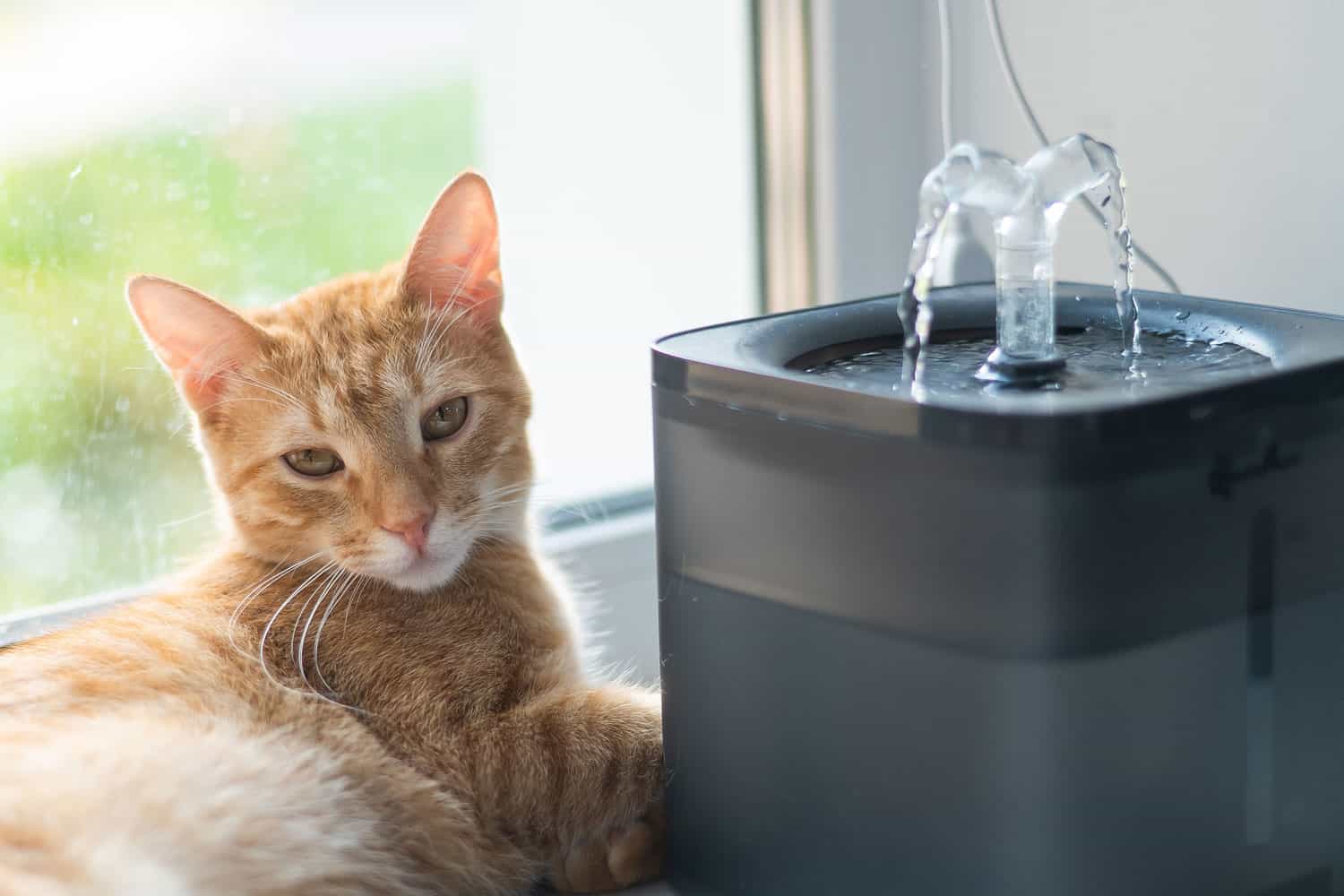
When a cat is dehydrated, their urine can become more concentrated, leading to a darker color.
In severe cases, you might even notice a white or chalky substance in the urine, which could indicate a high concentration of minerals.
Urinary Tract Infections (UTIs) in Cats
Urinary Tract Infections (UTIs) are another common cause of changes in a cat's urine.
Infections in the urinary tract can lead to cloudy or discolored urine.
If your cat has a UTI, you might notice white or cloudy particles in their urine, which are due to the presence of pus.
UTIs can be quite uncomfortable for your cat and require immediate veterinary attention.
Crystals or Stones in Cat's Urine
Urinary crystals or stones, medically known as uroliths, can be a serious concern for cats.
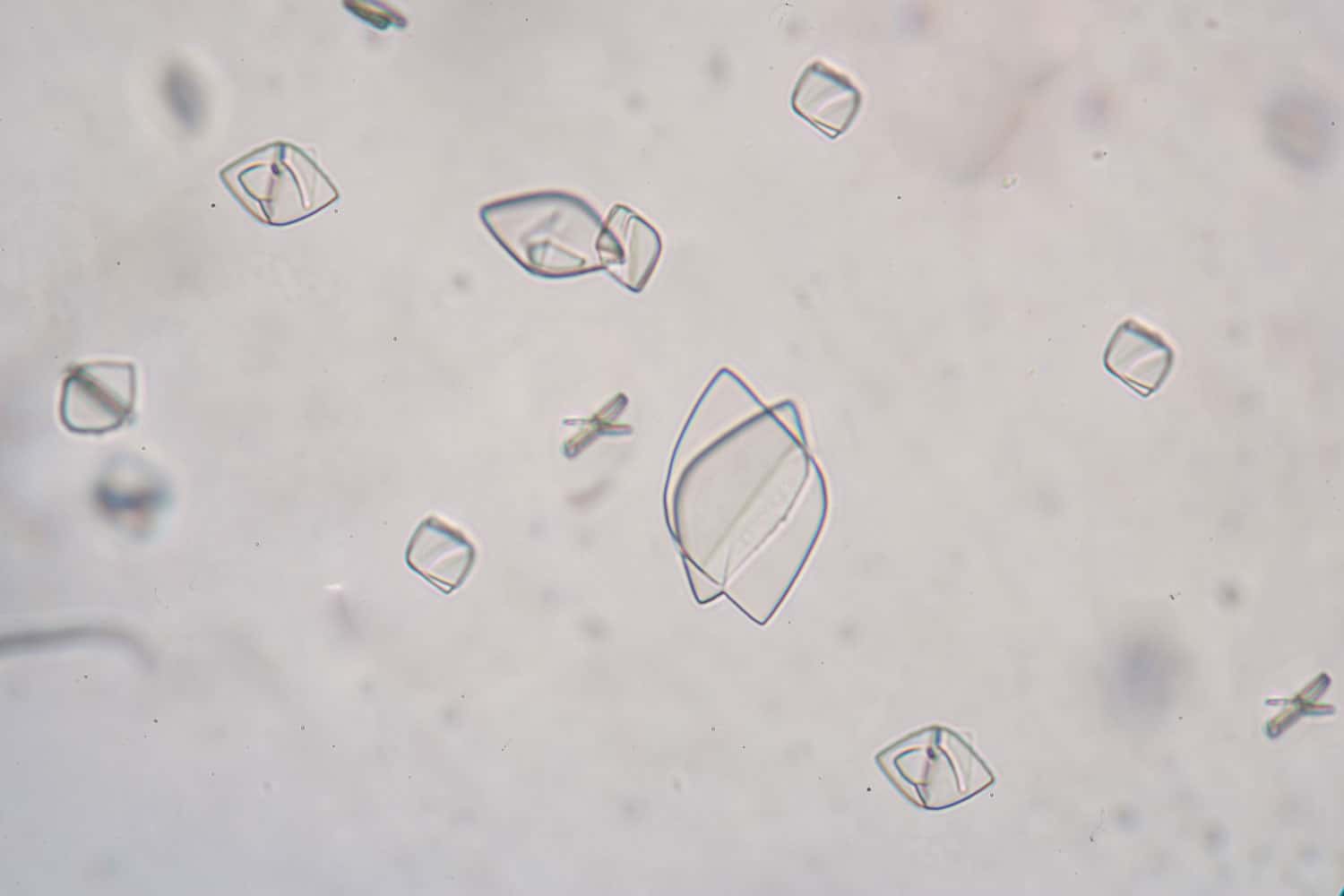
These are formed by a buildup of certain minerals in your cat's urinary tract.
The presence of these crystals or stones can lead to white, sandy, or gritty deposits in your cat's urine.
In addition to changes in the urine, symptoms might include frequent urination, discomfort while urinating, or even urinary blockages in severe cases.
White Stuff in Cat's Litter Box: In Feces
Discovering white substances in your cat’s feces can be alarming.
However, understanding the possible causes can help you take the necessary steps to ensure your feline friend's health.
Diet-Induced Changes
Sometimes, the white stuff you see might be due to changes in your cat’s diet.
For example, if you recently switched to a diet with higher bone content, the feces might appear whiter.
Paying attention to what you feed your cat is crucial, as abrupt changes in diet can also cause digestive issues.
It's always best to transition slowly between different types of food over several days.
Worms or Other Parasites in Cat Feces
Another common cause of white stuff in cat feces is the presence of worms or other parasites.
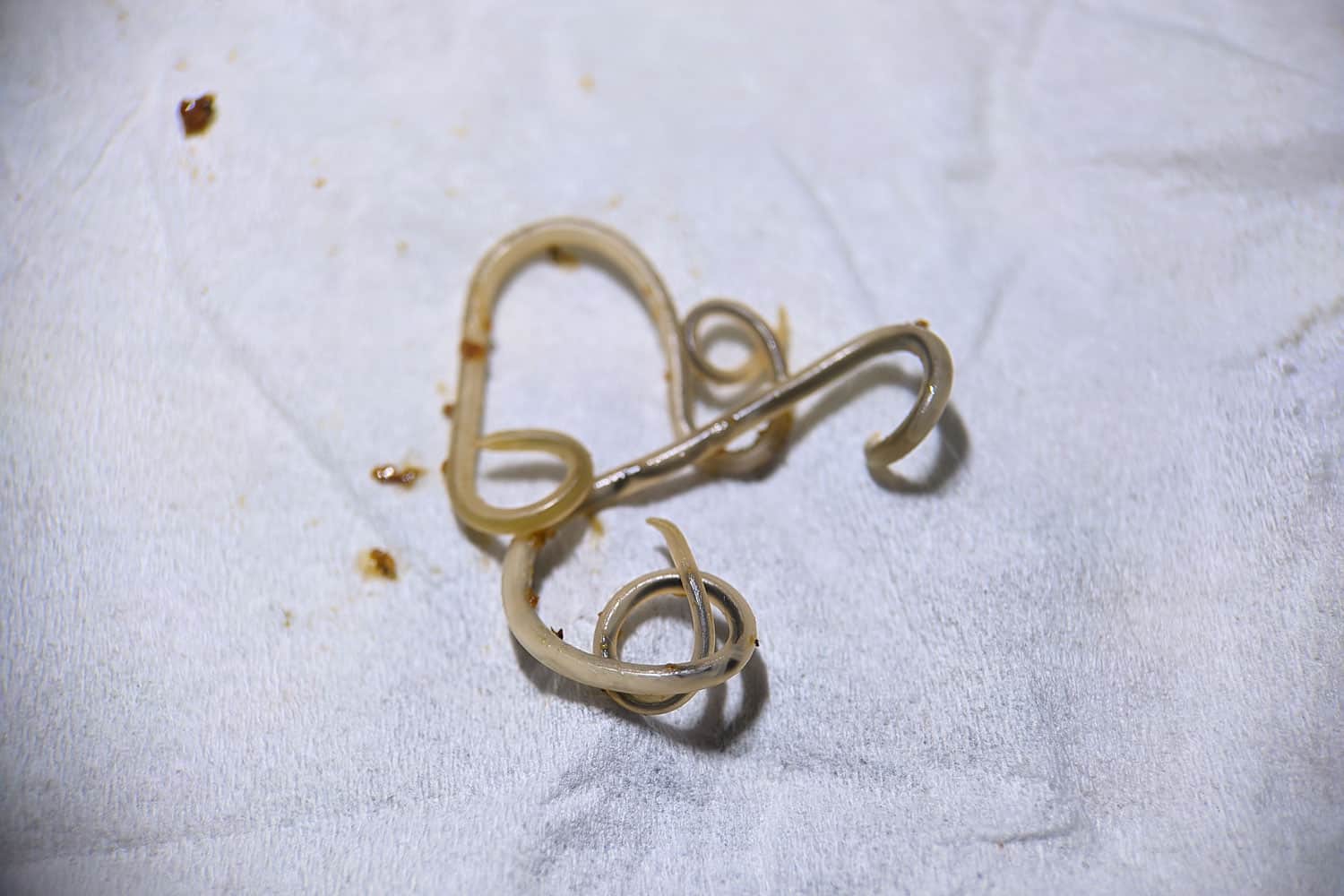
Tapeworms, for instance, often leave white segments that look like grains of rice in the feces.
Side Effects or Residues from Medications and Supplements
If your cat is on medication or supplements, these could also cause the white stuff in the feces.
Some medications may cause changes in the color or consistency of the feces.
It’s essential to monitor your cat closely during medication or supplementation and report any unusual changes to your vet.
Underlying Health Conditions
Certain health conditions, such as liver disease or issues with bile production, can cause your cat's feces to become pale or white.
This is often accompanied by other symptoms such as lethargy, loss of appetite, or vomiting.
If you notice these signs, you must seek veterinary care immediately.
Calcium-Rich Litter
Sometimes, the white stuff is nothing more than the litter itself.
Some litters are made from calcium-rich materials, and as they absorb moisture, they can leave white, chalky residues in the feces.
It's important to know the type of litter you are using and if it could be contributing to what you are observing.
White Stuff in Cat's Litter Box: Environmental Contaminants
Now, we will discuss some common types of environmental contaminants that might appear as white stuff in your cat's litter box.
Litter Dust or Residue
One of the most common sources of white stuff in your cat's litter box is simply dust or residue from the litter itself.
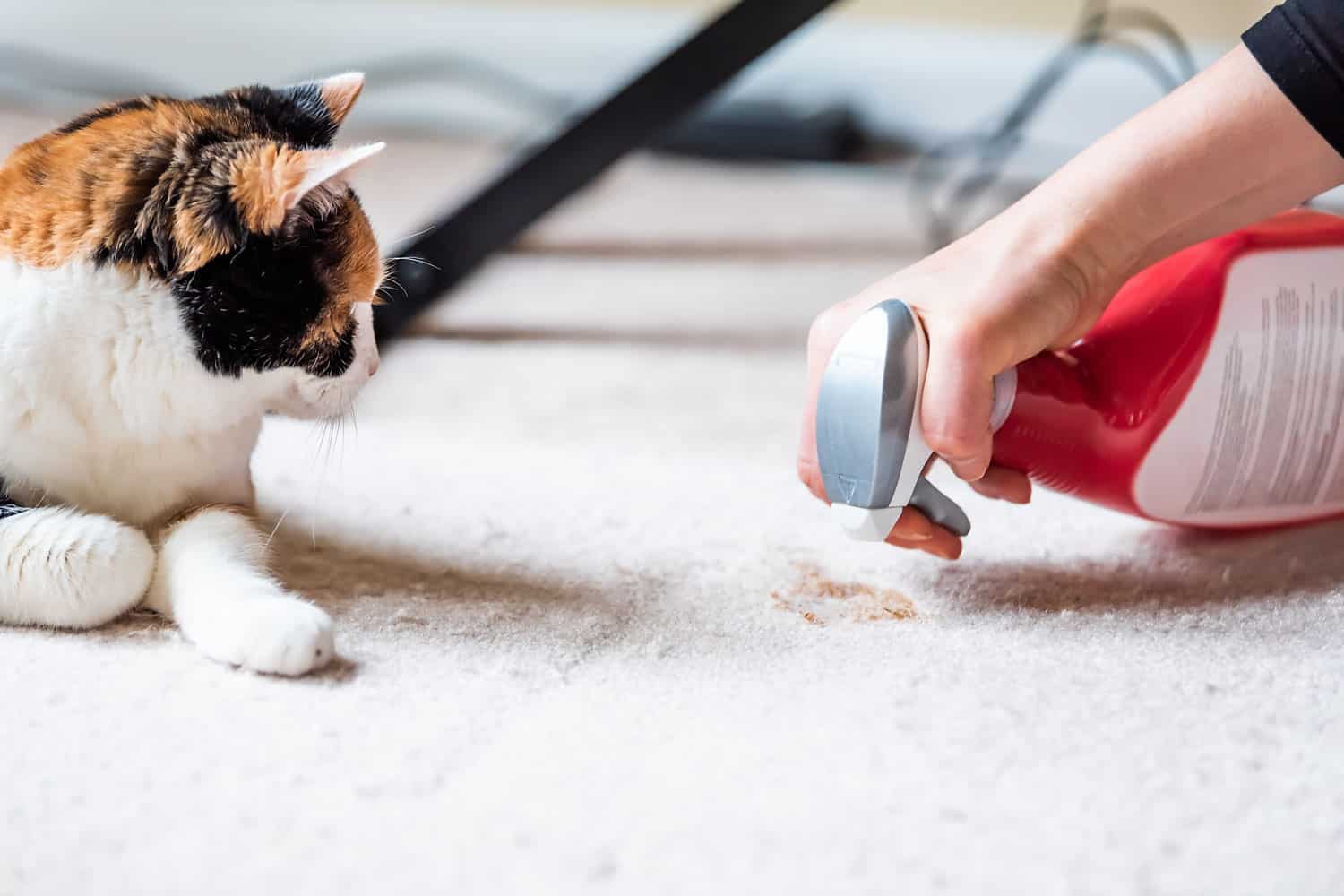
This is particularly common with clumping and clay-based litter, which can leave fine, white dust behind.
While this is usually harmless, if you notice your cat coughing or sneezing more frequently, it might be worth considering a dust-free litter to reduce potential respiratory irritants.
Shedded Fur
Cats shed, and some of that fur can end up in the litter box.
While this is typically more common with long-haired breeds, all cats can shed enough to leave visible fur in their litter box.
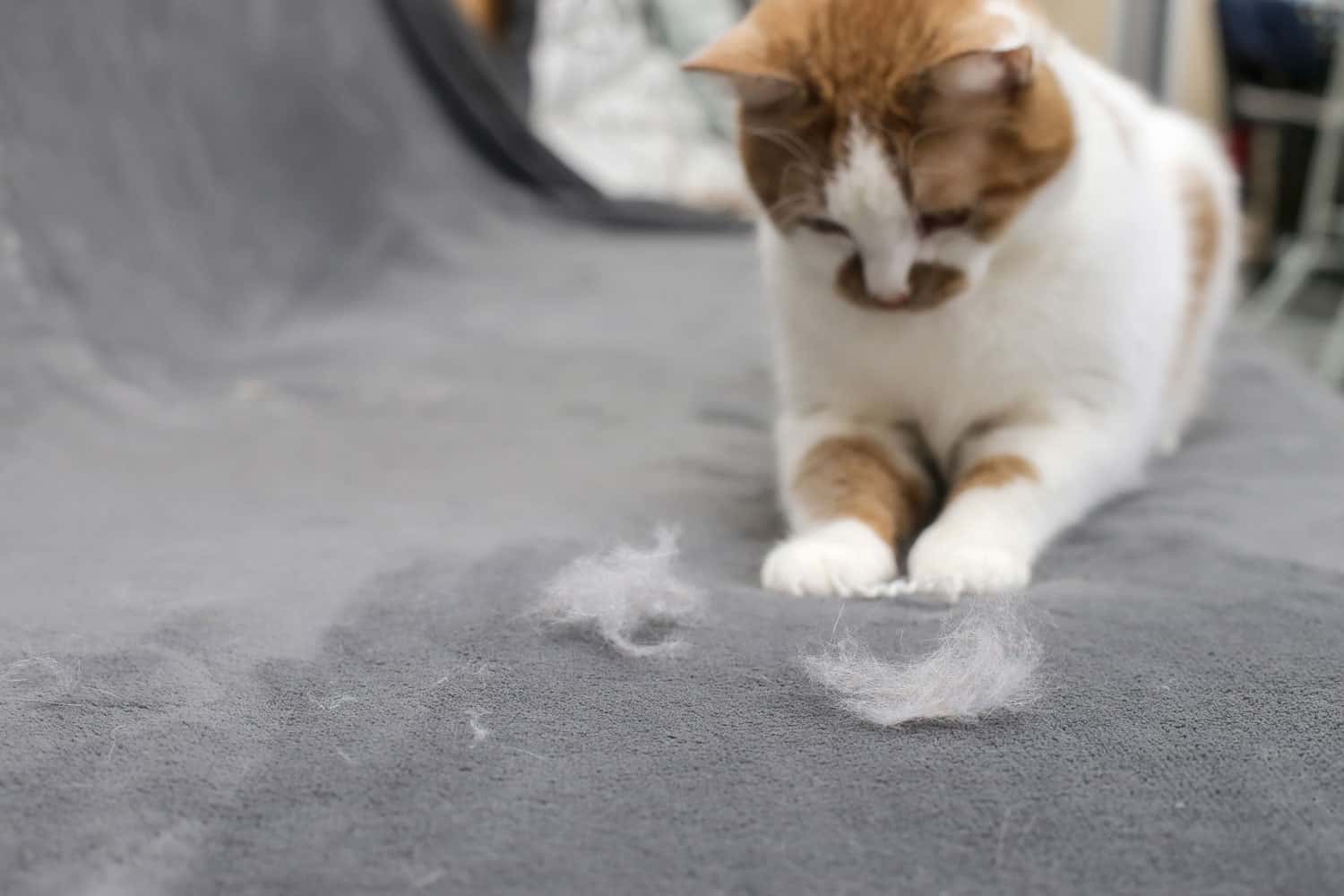
If you notice an increase in the amount of fur, it could be due to seasonal shedding, stress, or potentially a skin condition, and you may want to consult with a vet.
Foreign Objects
Our curious feline friends can sometimes drag foreign objects into the litter box.
These can range from toys to pieces of paper, and they usually aren't a cause for concern.
However, if you notice that your cat is ingesting non-food items and passing them in their feces, it could be a sign of pica, a behavioral issue, and you should consult your vet.
Prevention and Monitoring
Maintaining your cat's health and well-being involves a proactive approach:
Regular Vet Check-ups
Regular vet check-ups are crucial for early detection and prevention of health issues.
Your vet can provide vaccinations, perform routine screenings for common diseases, and address any concerns you might have.
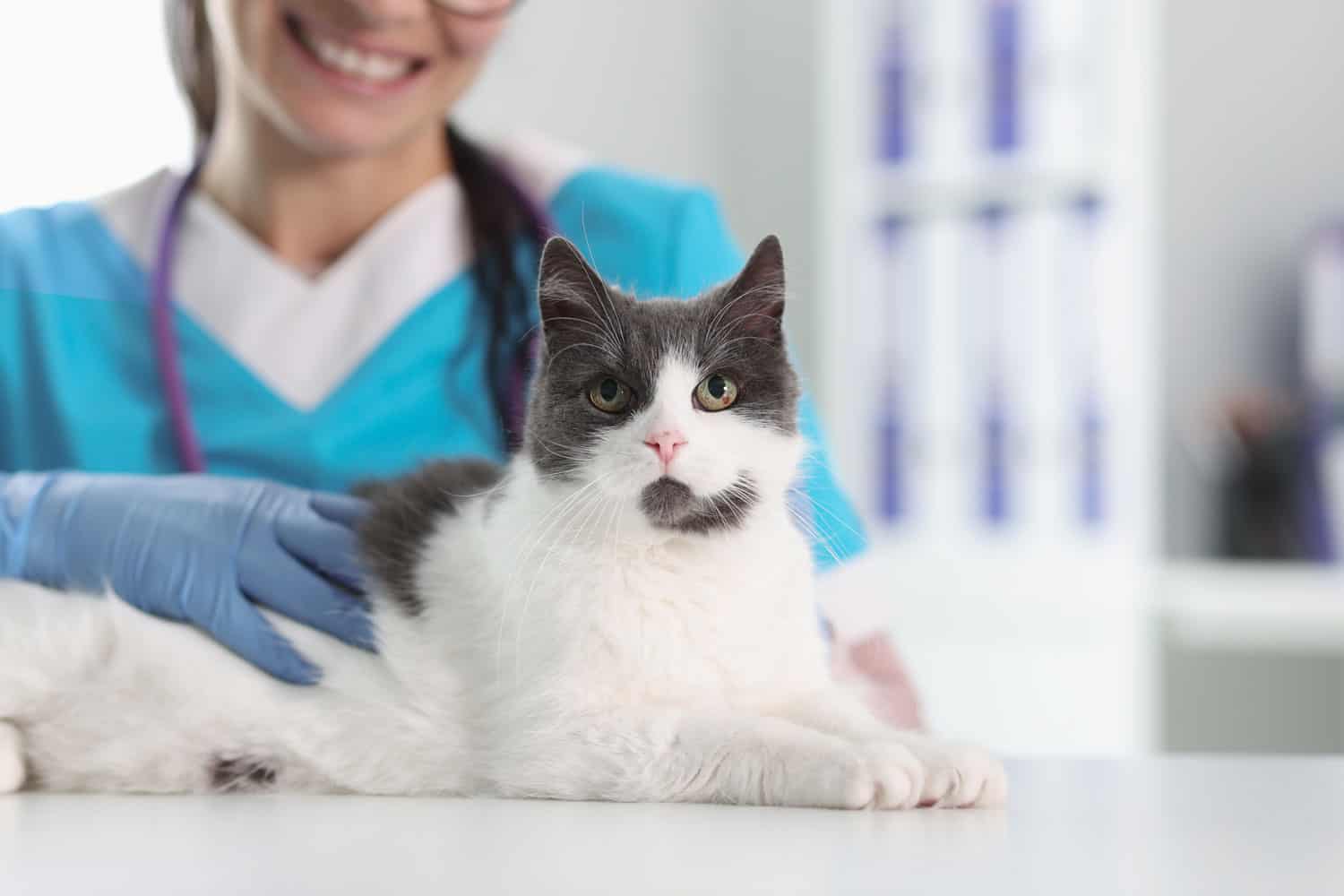
Remember, preventative care is often less expensive and less stressful for your cat than treatment for advanced diseases.
Healthy Diet and Hydration
Proper nutrition plays a significant role in your cat's overall health.
A balanced diet rich in essential nutrients can help prevent various health issues, including those related to urinary and digestive health.
Hydration is equally important, especially for cats who primarily eat dry food, as it aids in preventing urinary tract issues.
Providing fresh water daily and even considering a cat water fountain can encourage your cat to drink more.
Importance of a Clean Litter Box
Keeping your cat's litter box clean not only helps maintain a pleasant household environment but also allows you to monitor your cat's waste more effectively.
Regularly removing waste and thoroughly cleaning the litter box can discourage the development of parasites and bacteria.
It also encourages your cat to use the litter box consistently, giving you regular opportunities to check for any changes in their waste.
Regular Deworming
Cats can pick up worms from various sources, such as soil, fleas, or prey animals.
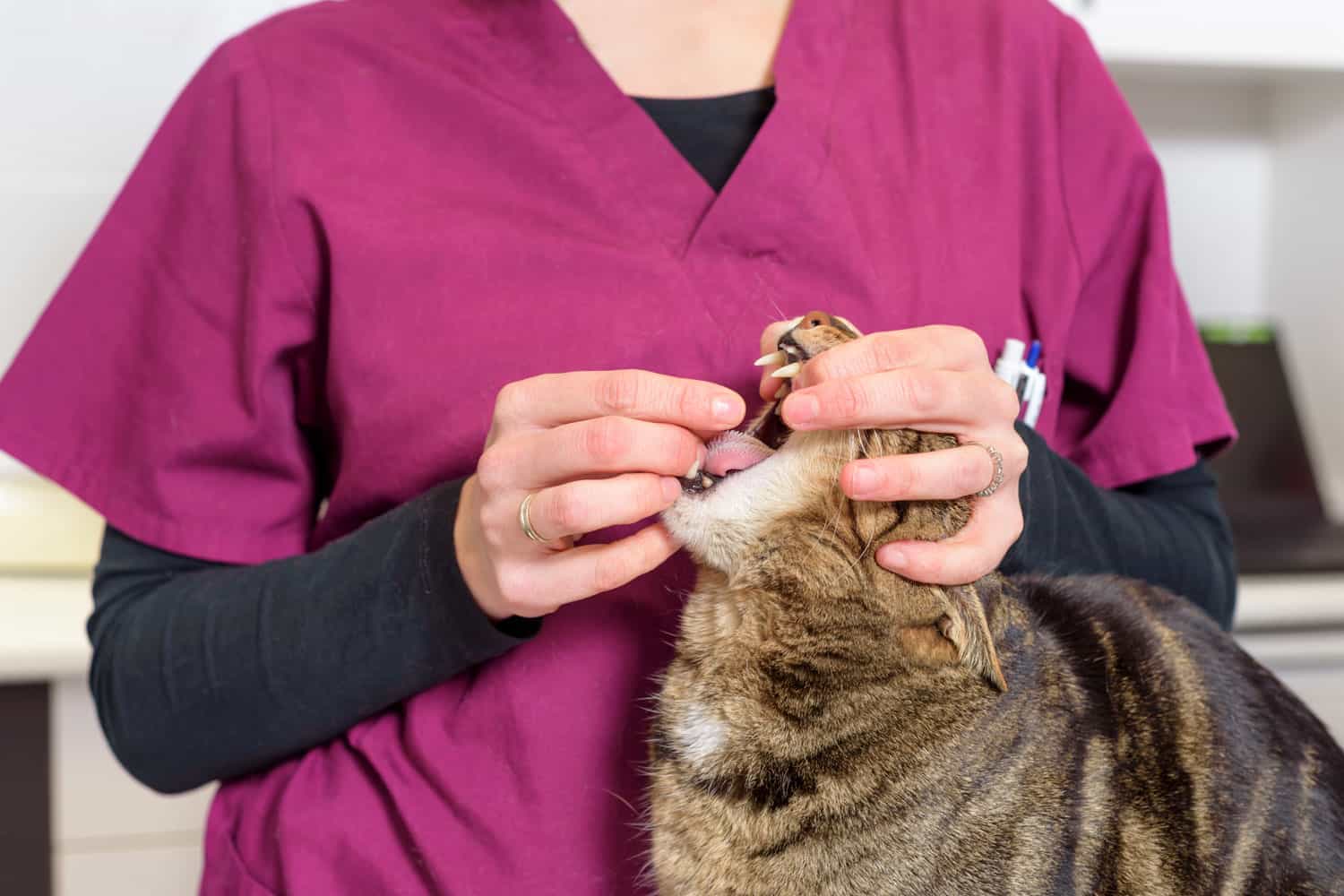
Regular deworming, as your vet recommends, can help prevent parasite infestations.
It's also important to monitor your cat's feces for any signs of worms, such as white, rice-like segments.
Environmental Enrichment
Finally, providing a stimulating environment can also contribute to your cat's health.
Environmental enrichment, such as playtime, climbing trees, or scratching posts, can reduce stress and promote physical activity, which can help maintain your cat's healthy weight and reduce the risk of obesity-related health issues.
Don’t Panic, But Don’t Ignore The White Stuff In Your Cat's Litter Box!
While it's essential not to panic at first sight of white stuff in your cat's litter box, it's equally important not to ignore it.
Your cat's litter box can provide valuable clues about its health.
Therefore, any significant changes should be taken seriously and discussed with your vet.
For more valuable articles to read, check out below.

